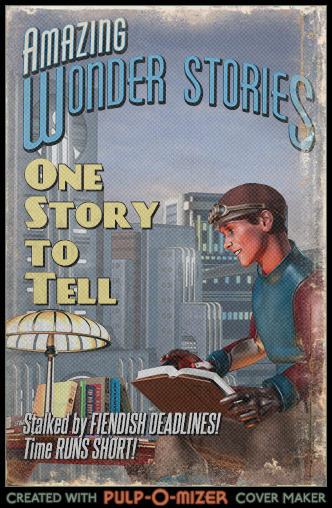Why Write Science Fiction?
Recently on GooglePlus, Jason Wade Howard asked the question, “Why do we write Science Fiction?”
I couldn’t resist giving a flip answer first:
Short answer: because those are the stories that play in my head anyway. I might as well write them down. 😀
But before I hit send I thought about it some more, and I think I understand why I write science fiction and fantasy. In fact, I’d go so far as to say that I think this is why all genre and mainstream writers write the stories they do.
Longer answer: There has long been an idea that science fiction is driven by ideas and plots, rather than by characters like mainstream fiction. I think that’s because a lot of science fiction writers are excited about their ideas and plots when asked about their stories, while the mainstream authors begin their discussions with their characters.
But I think the conclusion that mainstream novels are character-driven and genre novels (such as science fiction) are plot-driven (or that SF is purely idea-driven) is a fallacy. When writers discuss their works, they often think first of what drew them to the story, the original idea. That original idea spawned the story, but that does not mean that the story focused only on one element to the exclusion of others. Mainstream novels need compelling plots and ideas, and genre novels need compelling characters.
But the difference in the original seed ideas behind the stories tends to create the difference between mainstream novelists and genre novelists.
A mainstream novelist might look at a harried barista, see something interesting in a gesture or expression, and start jotting down story ideas about who the person might be and what might be going on in their life, then build a novel out of the fictionalization.
A science fiction novelist might look at the barista and think of the Boston Tea Party, wonder what the event would have looked like on the moon, if Earth represented England and the lunar base the Colonies-cum-United-States.
I think all writers play what-if games, and the type of games they play determines the kinds of stories they tell.
Of course, this idea relies on stories as differentiated by their kernel ideas, instead of some other part of their structure. Does that seem reasonable?


